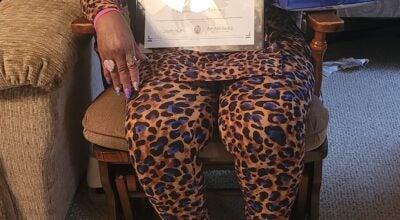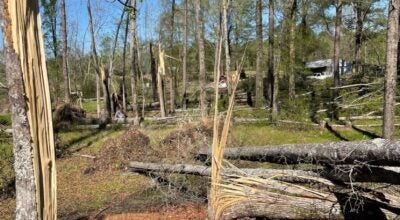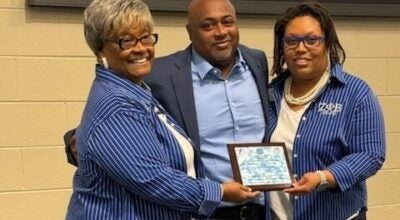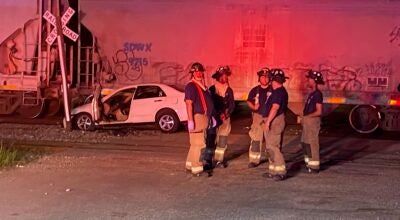Farrakhan joins marchers for Voting Rights in Selma
Published 8:44 pm Friday, June 14, 2013
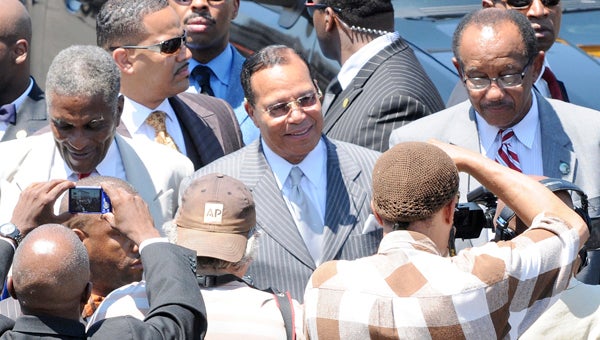
Nation of Islam leader Louis Farrakhan, center, begins his march across the Edmund Pettus Bridge Friday afternoon, joined by Selma Mayor George Evans, right, and Tuskegee Mayor Johnny Ford. Farrakhan’s visit to Selma was part of a tour of Alabama locations that played a role in the voting rights movement. — Ashley Johnson
Protestors marched across the Edmund Pettus Bridge Friday behind Nation of Islam Leader Louis Farrakhan, Selma Mayor George Evans, state Sen. Hank Sanders and other state and local officials.
By the end of June, the U.S. Supreme Court will rule on whether or not to uphold Section 5 of the Voting Rights Act of 1965, the provision which was installed to prevent voting district line changes — or other electoral changes in a few states — that discriminate against black or minority voters. This challenge was brought before the Supreme Court earlier this year by Shelby County.
To show their support for Section 5 and the Voting Rights Act, several hundred protestors gathered in Songs of Selma Park to march over the bridge Friday afternoon and then gathered on the Selmont side of the bridge to hear Farrakhan deliver a speech.
He made stops throughout the state Friday in Shelby County, in Selma to march across the bridge and then went to Montgomery to stand alongside several hundred protestors at the state Capitol.
“My mind was on the police and the tragic circumstance that led to a Voting Rights bill,” Farrakhan said about what he felt marching over the bridge, while some sang and others chanted about freedom and their rights. “We have to understand that nothing worthwhile comes without struggle and without sacrifice and the greatest men and women of history are those who are willing to give it all up including their lives to produce change for a future generation.”
He spoke mostly of his faith during his 30-minute speech at the rally, but said the wicked ones are trying to deprive his people of a right that is truly theirs.
“I want to say this as the owner of the country — you have a hell of a nerve telling me where I can come in, Alabama,” Farrakhan said. “We paid the price, our blood is in the soil in Selma, Alabama. We drowned in the rivers and the lakes and hung in the trees, so don’t you tell us you own this.”
Evans, who marched alongside Farrakhan across the bridge, spoke to those at the rally and welcomed them to the city.
“We are here today because of what happened in 1965, with the challenge of the right to vote, and now there is a threat to lose it,” Evans said. “But that is not we are about in the history of this state and this country.”
Many of those who participated in the rally and march were from out of town, but some Selma residents came to bring awareness of violence in the community
“We are here with the Safe Haven Center in Selma and we are protestors of the youth violence in our city — this is all about awareness and a cry for unity,” Rosetta Bowen said with her husband, Rev. Michael Bowen, close by. “I am so happy that Mr. Farrakhan took the time to come out to Selma and several other places.”
Bowen said she thinks the problem of violence in Selma and the need for Section 5 intertwine because, “If there are no rights, then there is no freedom, and our young people need to know the importance of freedom. If they knew what people fought for to give them freedom, then maybe they would not be so violent.”


